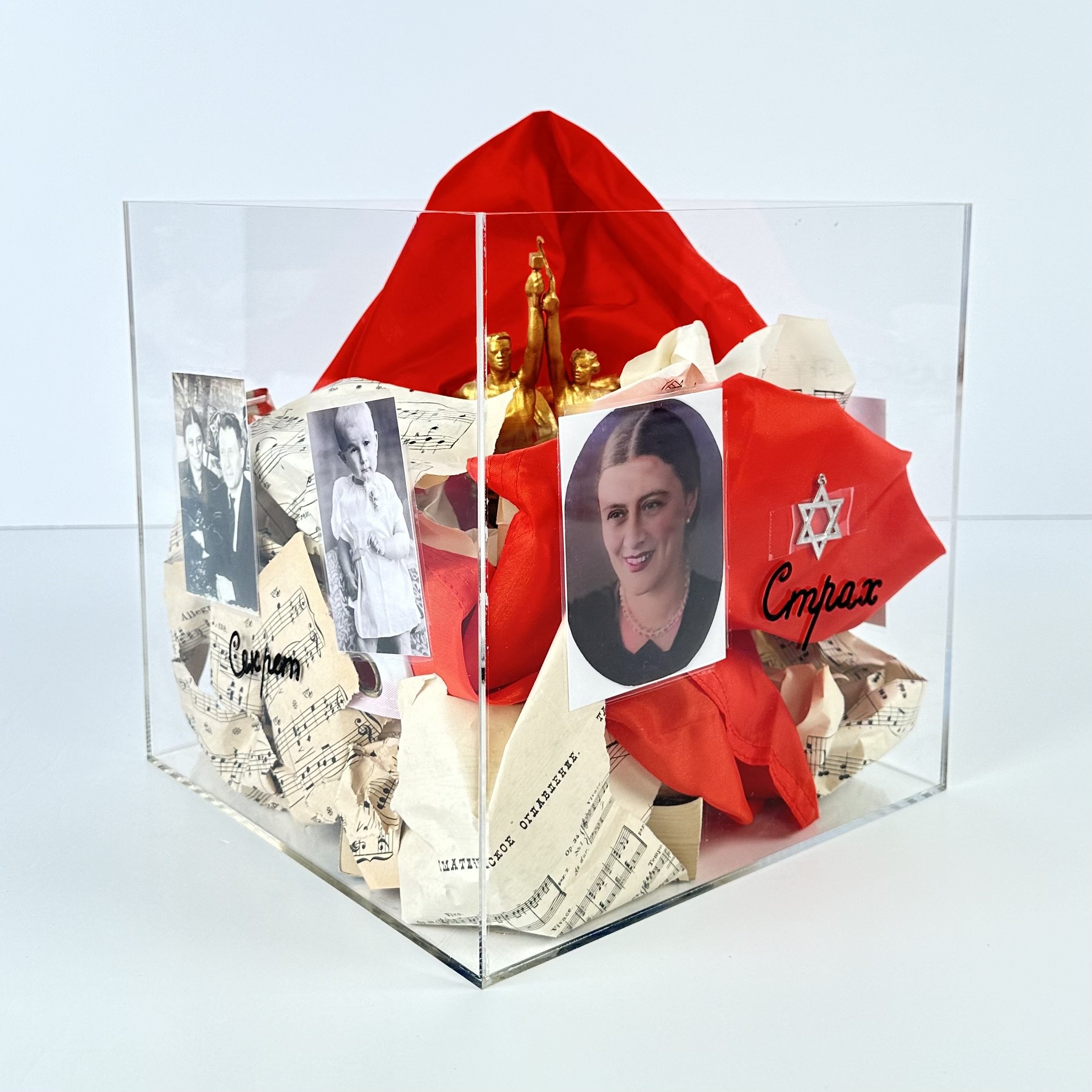
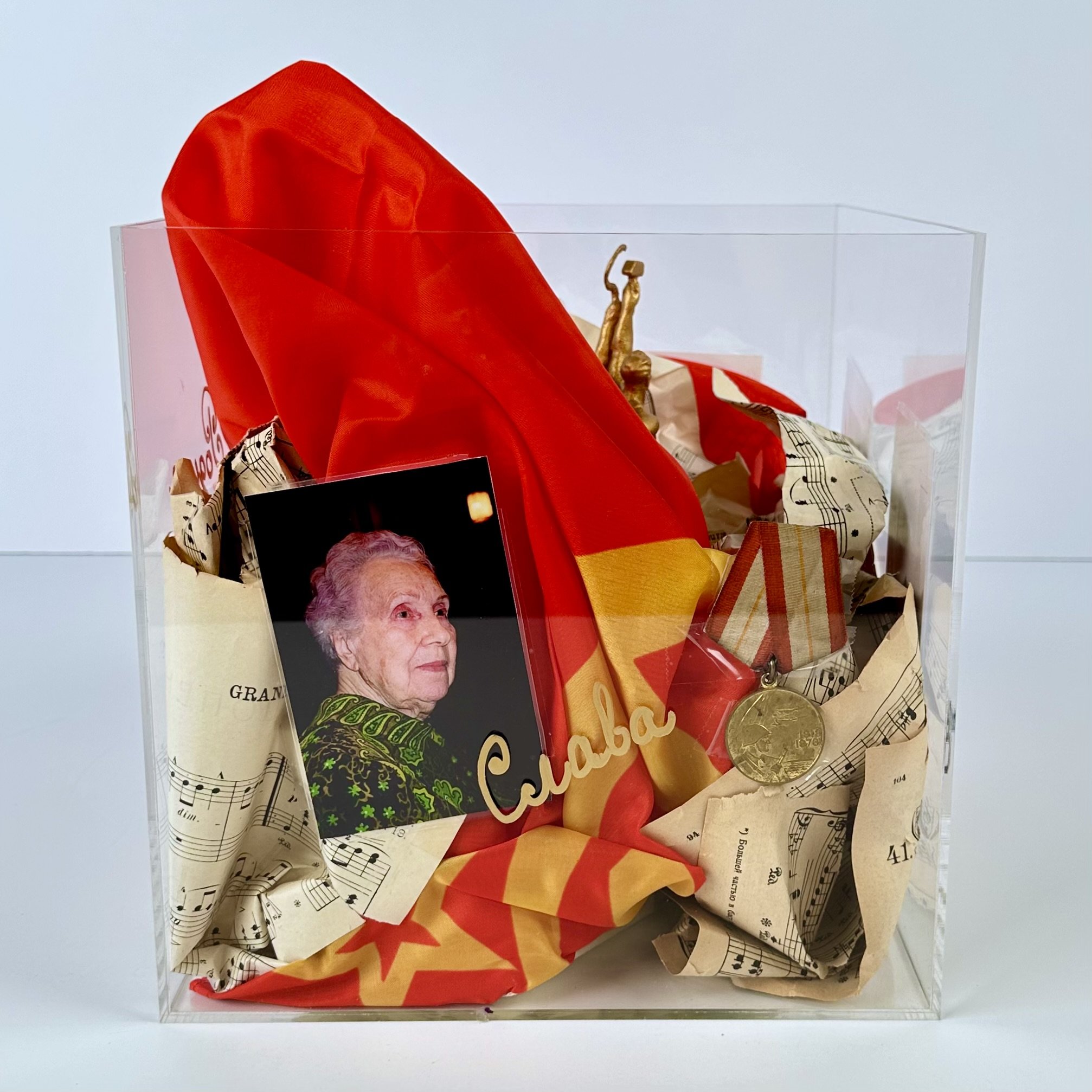
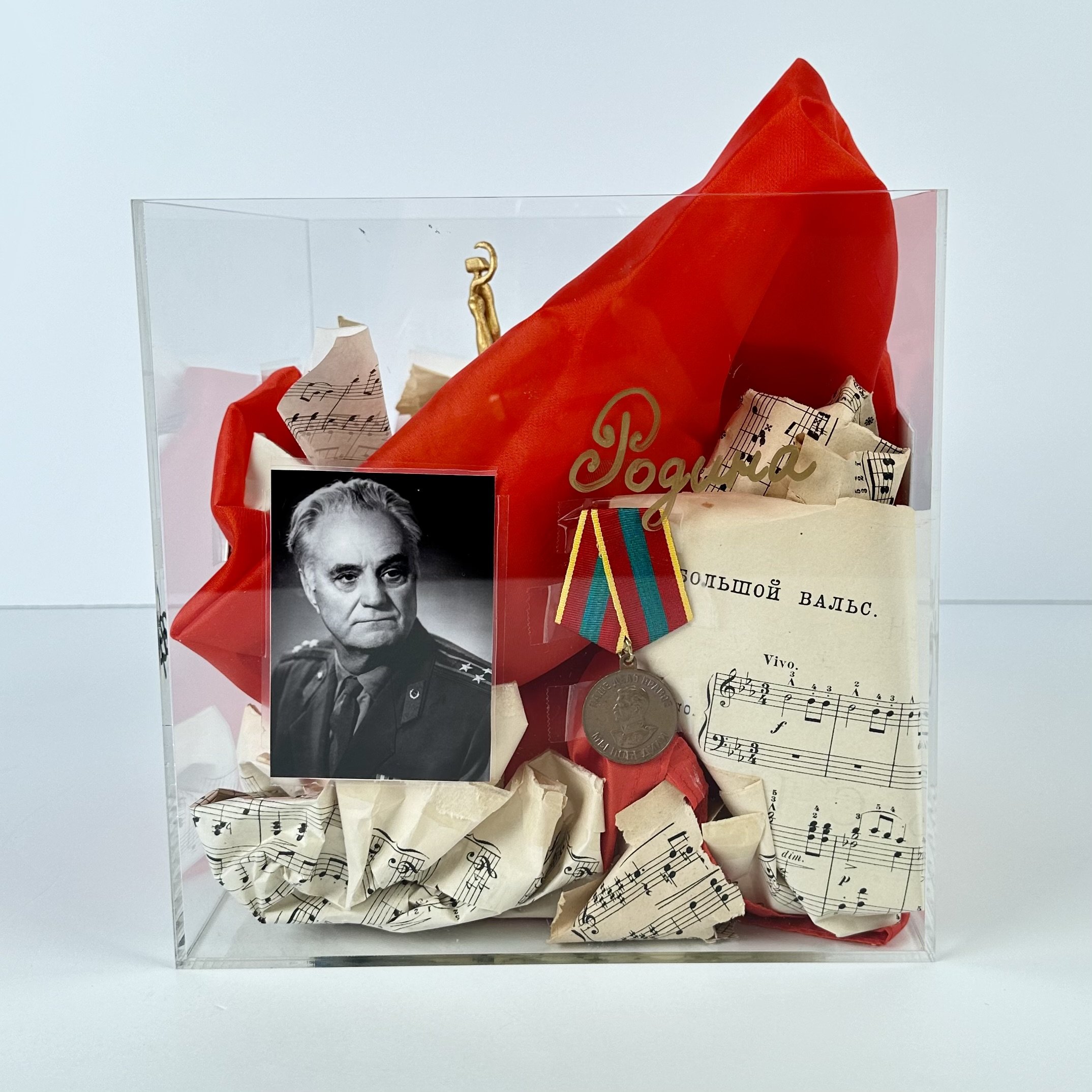
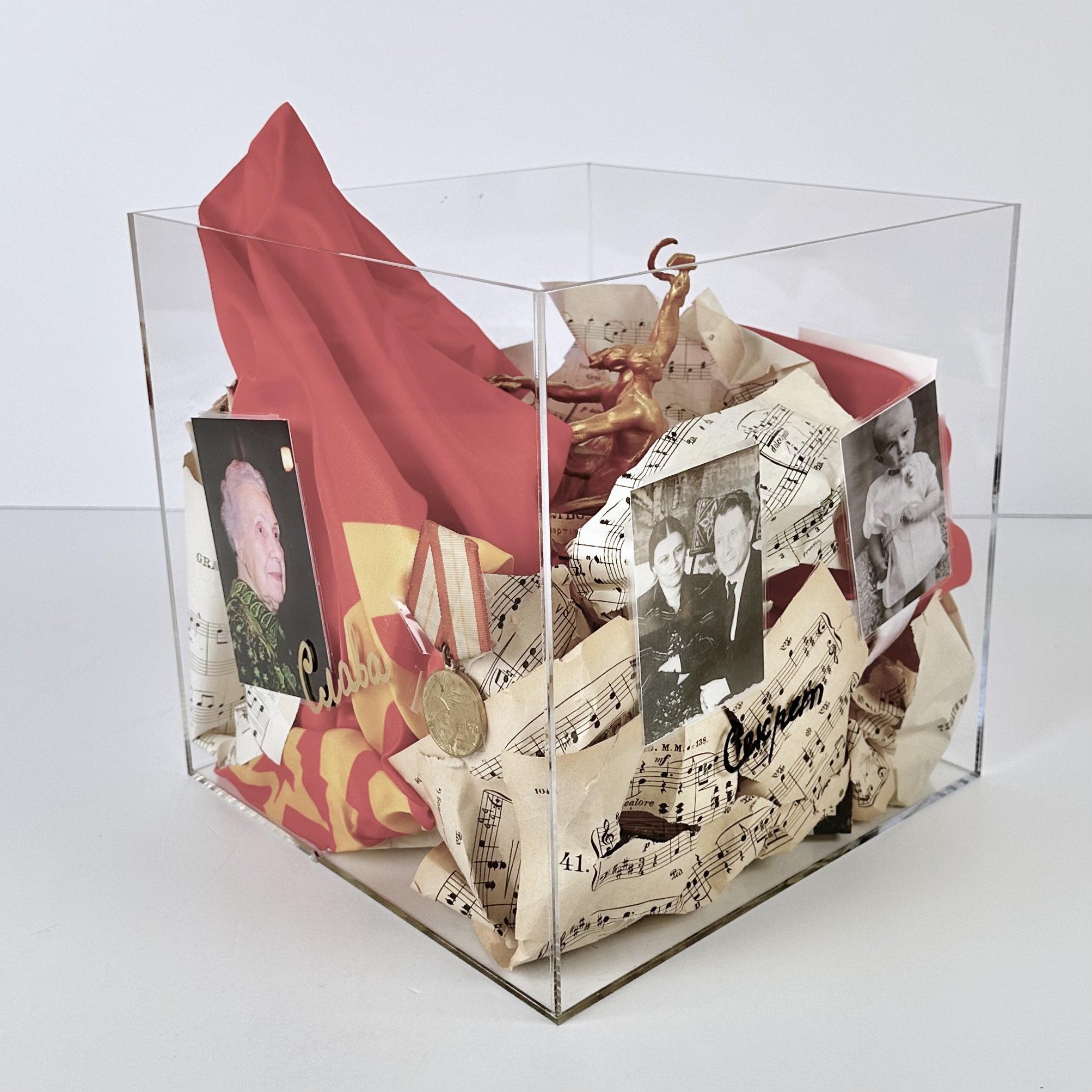
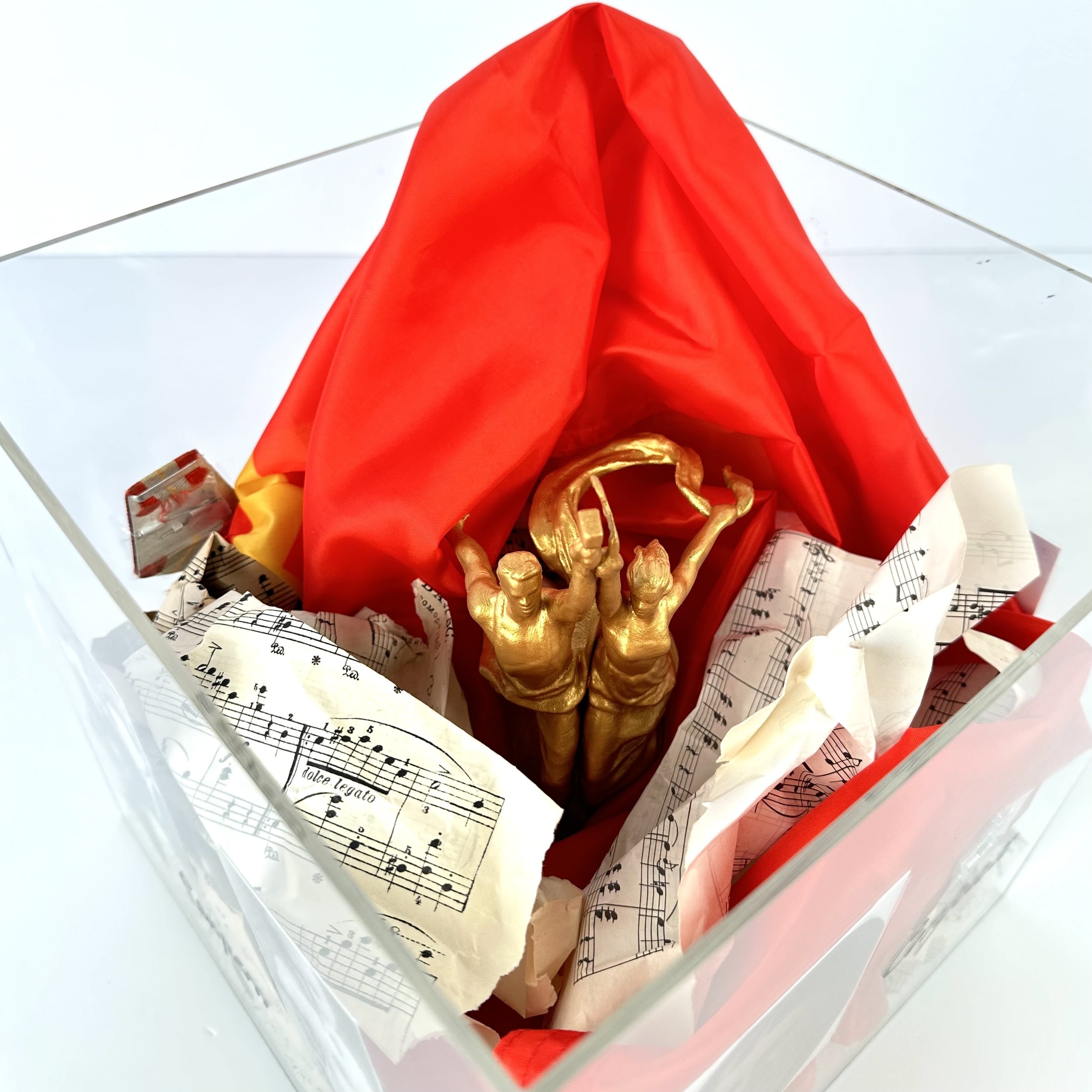
Natasha Kurtova-French
Unbreakable Union
Age: 64
Artist Statement
My name is Natasha Kurtova-French. I live in Portola Valley, California. I was born in Moscow, Soviet Union in 1960. The first half of my life, my childhood, my youth, my first career, my first marriage, and my early motherhood was spent in Moscow, a city I adored. I often wonder about my identity, as I've never felt that I fit into any group, tribal nation. It's like a thousand piece puzzle. I'm eager to put it all together to finally see what comes out. In this identity puzzle I see the shadows of my Soviet grandparents in their lives. I assembled these pieces into my box. I grew up in a privileged family. My father had an important position in the Soviet military. Because of his status of a Soviet elite, we had a chauffeur and access to produce only if you had, caviar that my nanny forced me to eat every morning, Danish milk for my newborn son, sugar and toilet paper when these goods were in short supply. My father obtained this job because of my grandfather's connections. Vladimir Ivanovich Kurtov was a colonel and worked in Stalin's apparatus during World War II, probably in the KGB. nobody knew what he was doing.
I remember my grandfather as a gentle, kind man who later in life attempted suicide. He died in a mental asylum. My grandmother, Valentina, was from the family of Kosiors. On many occasions, she would mention this name with great pride. Only later, I learned that four Kosior brothers were active supporters of Stalin. The most known Stanislav, my grand -grand -uncle, was the first secretary of the Communist Party of Ukraine. He orchestrated brutal repressions, driving Ukrainian peasants into collected farms. My grandparents lived in a spacious apartment with alcoves in a prestigious Moscow neighborhood. I visited them often on my own since I was 10. We played dominoes, cards, listened to patriotic songs and watched movies about World War II.
Valentina was a sturdy, cheerful woman and later an ardent support of Putin. I never met my maternal grandparents. They are distant, romantic figures. My grandfather Ivan Ananiyev died before I was born, and my grandmother Frieda Nemtzer saw me only once when I was just born. Ivan was a soldier in World War II.
He was lucky to survive but was emotional and physically bruised from combat. Frida was an accomplished pianist and traveled across the country, performing in front of soldiers, farmers, and workers.
Frida came from a large Jewish family of Nemzer’s residing in Odessa. Grief and emotionally distressed became a part of their DNA. They had too many tragedies.
Frida lost her twin sister and an early age. They had a typhus epidemic. Her brother, Misha, vanished during the siege of Leningrad, where 1 and 1/2 million civilians were slaughtered due to starvation and cold when Hitler encircled the city for 900 days. And she lost her two aunts and an uncle in the concentration camps.
Whispers, secrets and cries, anger and fear surrounded my mom's childhood.
The piano became her place of peace and refuge. My mom hid our Jewish roots, as she said later, for my sake. I wear Frida's crystal necklace, the one I see in all her pictures, feeling so more connected to my Jewish roots, and to the woman I saw only in photos than to my other grandmother that I knew so well.
Some pieces of the puzzle are starting to come together.
